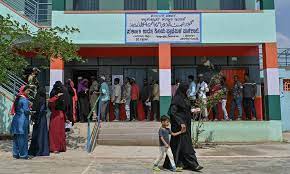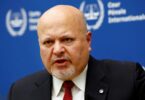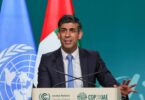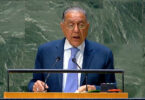Monitoring Desk
NEW DELHI: In a significant development poised to reshape India’s political landscape, a dedicated panel has been formed to delve into the prospects of synchronizing state and national elections under the banner of “one nation, one election.”
The core objective of this initiative is to enhance governance efficiency by curbing the extensive time politicians dedicate to election campaigns and directing their focus toward legislative responsibilities.
Federal Parliamentary Affairs Minister Pralhad Joshi has taken the lead in championing this transformative endeavor. He announced the formation of a committee, comprising constitutional experts and seasoned political minds, to engage in comprehensive discussions regarding the viability of this pioneering idea.
The committee’s eminent chairperson is none other than former President Ramnath Kovind, ensuring a well-balanced and experienced leadership for this intricate task.
India’s democratic evolution
Pralhad Joshi emphasized the historical significance of this proposal, stating, “India is called the mother of democracy… and the discussion around (one nation, one election) is part of evolution.”
He further confirmed that this pivotal plan would be presented for discussion during the upcoming special parliamentary session, convened by Prime Minister Narendra Modi’s government, scheduled from September 18 to 22. Notably, the exact agenda for this session has not yet been disclosed.
Case for “one nation, one election”
The concept of “one nation, one election” has been a longstanding priority for Modi’s Bharatiya Janata Party (BJP). Advocates of this move argue that consolidating state and federal elections holds the potential not only to streamline governance but also to significantly reduce the substantial costs associated with conducting elections in the world’s most populous country.
Challenges on the path to reform
However, the road to implementing such a sweeping reform is fraught with complexities. Achieving synchronization would require aligning the terms of state legislatures, currently elected at varying intervals for five-year terms.
Enacting a “one nation, one election” law necessitates parliamentary approval and subsequent ratification by individual states, approximately half of which are governed by parties in opposition to the BJP. Critics contend that this initiative could potentially undermine India’s cherished federal political structure.
Opposition voices and regional concerns
Leaders of opposition parties were swift to voice their reservations, expressing their categorical refusal to support the proposal in parliament. Regional parties, in particular, raised concerns that simultaneous elections would diminish their capacity to address and underscore local issues during election campaigns.
The establishment of this committee and the forthcoming parliamentary discussions mark the inception of a contentious and potentially transformative debate within Indian politics.
As the nation watches closely, the outcome of these deliberations will undoubtedly wield considerable influence over the future electoral landscape and the efficiency of governance in India.







